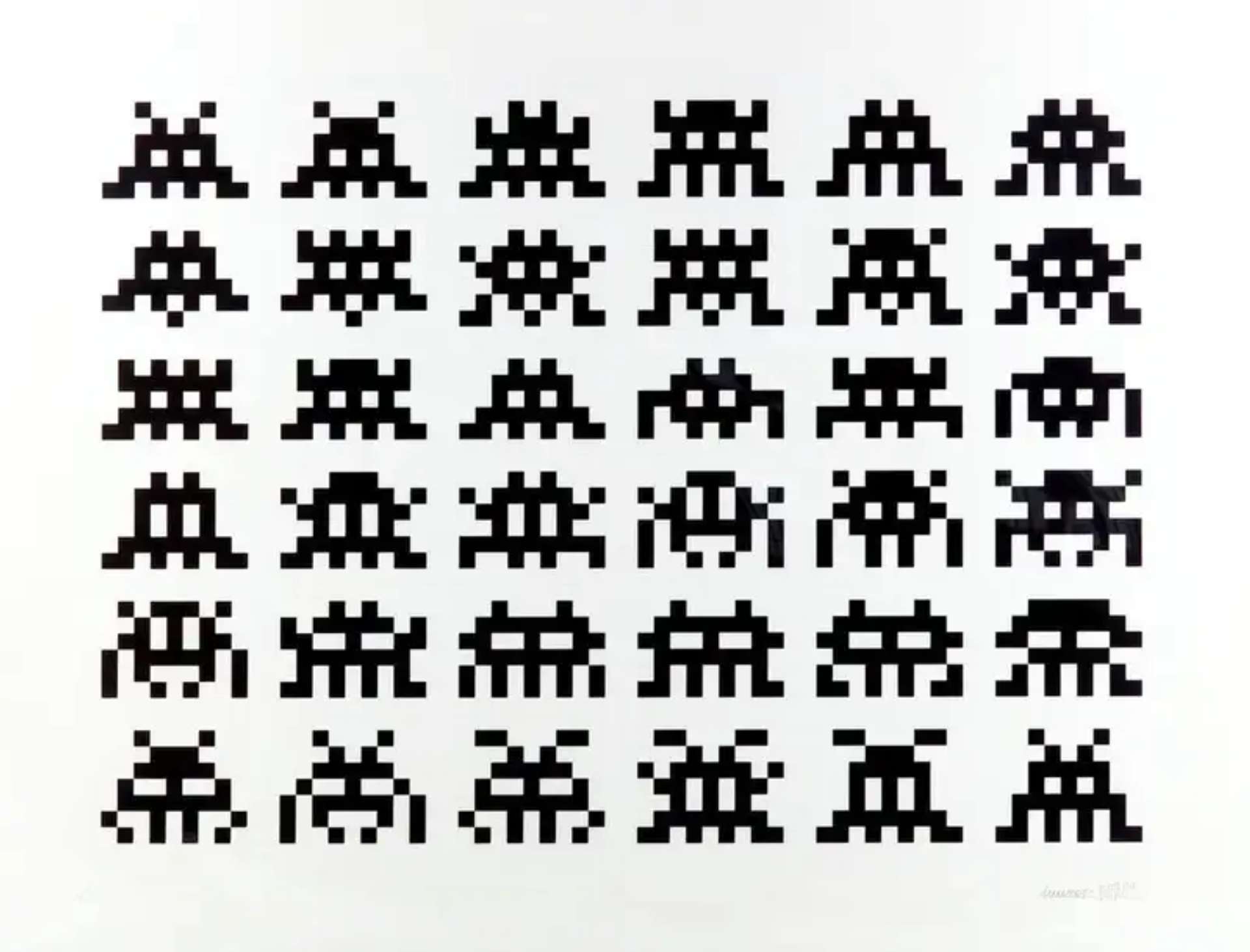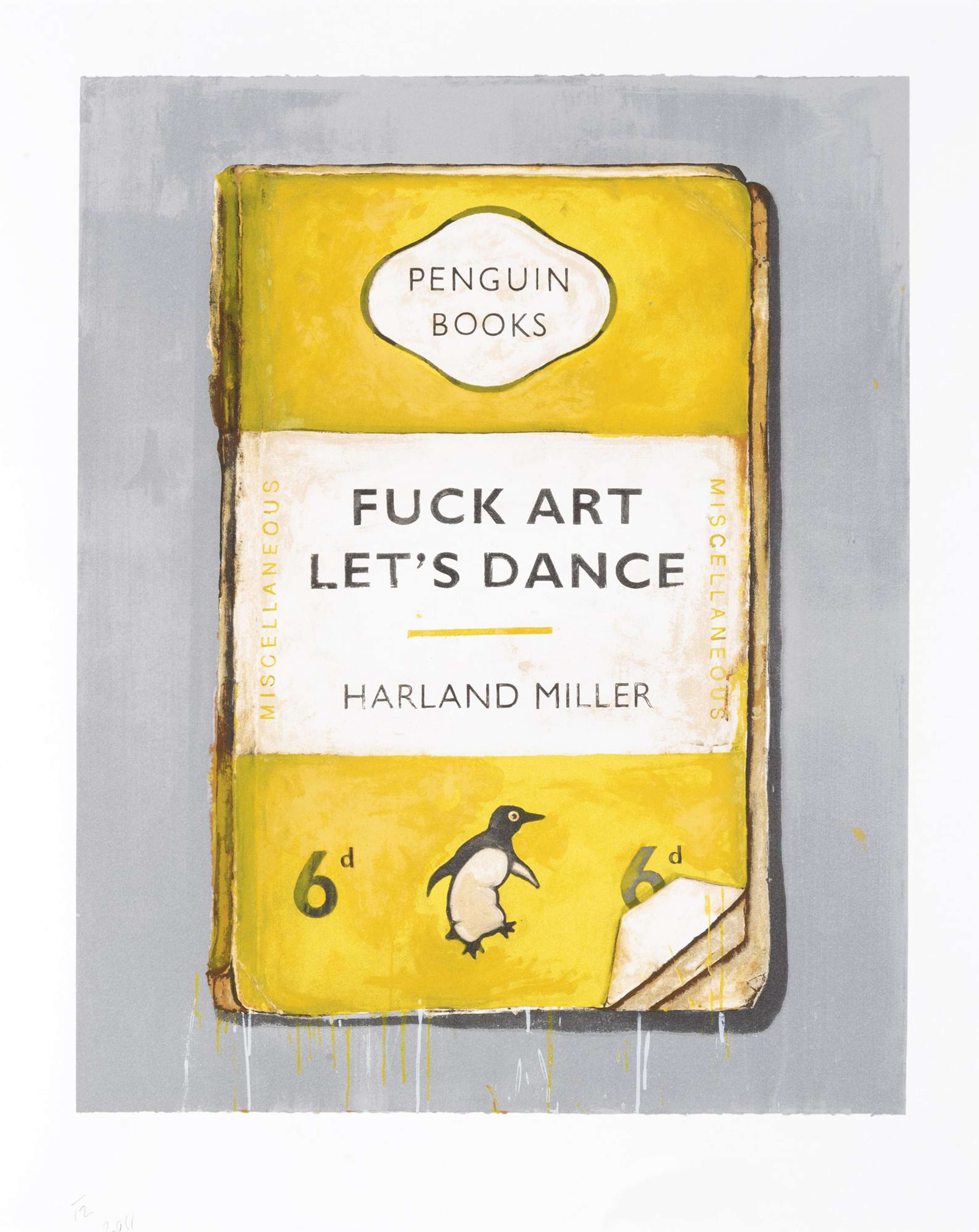Investing in The Post-war & Contemporary Print Market in 2023: 5 Years in Review
 Elapse © Bridget Riley 1982
Elapse © Bridget Riley 1982Market Reports
Despite a turbulent few years in the economy, after swift self-correction the contemporary print market continues to grow, providing particularly strong returns on works by artists such as David Hockney and Bridget Riley.
Though the excitement of the contemporary art market lies precisely in the fact that it can be harder to predict, by blending both public auction data and private sales data from our 15k strong collectors network, our unique market value index is well equipped to help you make the most informed decisions on your art investment.
Read below for overviews of the past 5 years in sales for our top Post-war & Contemporary artists: David Hockney, Bridget Riley, Damien Hirst and Harland Miller.
Download our complete 2023 Print Market Report here, to explore expert opinions on the prints and multiples market over the last five years.
Data-Led Art Investment
Our value index blends public auction data and private sales data from our collectors network. Our market value index uses artwork & artist data and a Repeat-Sales Regression (RSR) approach. Using the sale price of individual prints to estimate the fluctuations in the value of an average representative print over a unique period of time.
Our algorithm tracks over 48,500 auction histories & our own private sales data across 3,500 artworks spanning 30 years, including signed, unsigned, APs, PPs, TPs and sets of prints & editions.
Key of metrics when comparing artists.
- Market Size: the total value in sales in £GBP over a given period.
- Transaction Volume: the total number of sales over a given period
- Average Sales Price (ASP): the average price of a sale over a given period.
- CAGR: the Compounded Annual Growth Rate - a measurement used to smoothen the annual rate of growth over a given period.
- YoY: year over year - a direct comparison between the latest year and previous year.
On the one hand, the contemporary art market is, by nature, harder to predict than more mature markets. On the other hand, the four artists that we take a look at in this article—David Hockney, Bridget Riley, Damien Hirst and Harland Miller—are already top-performers in their genre, providing exceptional returns on individual works, and establishing their status as valuable long-term investments through steady growth.
David Hockney: Auction Sales Experience a Post-pandemic Push
Still actively involved in the art world, but having achieved fame in the 1970s, David Hockney’s artworks have a mature market, and reliable annualised growth, though his prints have performed exceptionally well over the last 24 months.
Subject to a stutter in 2020 in the wake of the pandemic, Hockney has bounced back with two years of high growth. Given that the market for Hockney’s prints maintains relatively consistent transaction volumes, with an 8% increase 2017 vs 2020, continued growth in his overall market size can be attributed to a significant appreciation in print values at auction, where competitive prices have been driving the growth in the total sales value.
 David Hockney’s Total Market Size in £GBP
David Hockney’s Total Market Size in £GBPAnd just as the increase in ASP has driven an exceptional growth in the total sales value, the returns on individual artworks are also overwhelmingly positive— of the 83 works where a direct 5 year comparison is available, only six show a loss. When the data is grouped, as below, it only reiterates the phenomenal returns collectors and investors would have experienced these past five years.
 Hockney 2017 vs 2022 % Print Returns
Hockney 2017 vs 2022 % Print ReturnsWHERE DO INVESTMENT OPPORTUNITIES LIE IN THE 2023 HOCKNEY MARKET?
To collectors’ advantage, entry into the Hockney market remains accessible and varied, with work ranging from the low thousands to hundreds of thousands. This makes the market relatively unique among other blue-chip names such as Andy Warhol and Banksy where works typically start in the tens of thousands.
Some of the top returns of value seen by contemporary art prints in the past five years were artworks by Hockney. Hockney's iPad drawings have fared especially well, with Untitled No.516 realising a staggering 633% 5 year return and 609% for The Arrival Of Spring In Woldgate East Yorkshire 17th April 2011. Evidently, his innovation and engaging relevance continue to play a key role in Hockney’s longevity and appeal with collectors.
Browse David Hockney prints here.
Bridget Riley: Fragment Sales Overshadow Undercurrent of Growth
The leading light of the Op-Art movement, Bridget Riley remains a consistent innovator at the age of 91. Riley’s market is consistently low volume due to scarcity on the secondary market, and averages can be affected by specific ‘star’ works.
Notably, Riley’s market is heavily influenced by the Fragment series - which over 5 years has represented 26% of the total sales value and 10% of the sales volume. Although attracting headline prices, the series has a fairly low compound annual growth rate in auction sales price: 4%, a low figure in part caused by a -5.6% drop in the year over year figure for 2022.
Where the compound annual growth rate for all of Riley’s works has remained steady over the 5 years, with both transaction volume and appreciation playing their part in a 10% growth in market size and 6% growth in ASP when Fragment is excluded a slightly different picture is given, showing more modest but consistent growth. When Fragment is excluded, the market size CAGR increases to 16% with the ASP rising to 10.4%.
 Bridget Riley ASP, excluding Fragment Series £GBP
Bridget Riley ASP, excluding Fragment Series £GBPAs a consistently low volume market, and without quite the notoriety of, say Hirst, it is to be expected that Riley’s print market attracts more attention for dramatic individual sales. But that should not distract from the key figure of CAGR, which can compensate for these fluctuations, and has remained positive and steady.
Browse Bridget Riley Prints.
Damien Hirst: Best to Buy? The Investor’s Contemporary Artist
Damien Hirst remains a prominent fixture on the contemporary art scene. A master of publicity, Hirst continues to generate headlines whether through larger-than-life artistic projects or innovative collaborations. His profile and output remain high, and this is reflected in the growth of his overall secondary prints market and continued demand for his work.
Hirst’s market has been driven in large part by the volume of sales, evidenced by a 19% market size CAGR over 5 years with a 4.5% CAGR in auction sales price. Interest and demand for Hirst remains high, with his work, on average, steadily appreciating in value, although prone to short-term fluctuations.
DAMIEN HIRST’S PRINT PORTFOLIOS AS AN IN-DEMAND ASSET
As evidenced in the Warhol market, the rise in demand for - or availability and creation of - complete sets has seen this segment of Hirst’s secondary print market grow to 15% of the total.
 Hirst Sales of Complete Sets £GBP
Hirst Sales of Complete Sets £GBPCreated as recently as 2021, Hirst’s series H9 has proven a particularly popular portfolio with the complete set showing a 54% increase in ASP YoY in 2022. Complete portfolios have always had the potential to unlock greater prices than individual prints, so it is hardly surprising that Hirst’s have been received well. But as the Warhol market corroborates, they seem to be growing ever more popular. Hirst shows himself, as ever, to be highly in tune with his own market and its demands as he works to meet the desire for complete suites of prints.
PREDICTING 2023’s CONTEMPORARY ART MARKET: IS DAMIEN HIRST WORTH INVESTING IN?
One thing to note with 5-year averages in relation to Hirst values, is his activity in the market - i.e. he is constantly working and releasing new editions. This means that many works do not have a full 5-year span to appreciate. Whereas 5-year spans are generally useful for gauging the stability of an artists’ work as an investment, they can undervalue the potential returns in cases where the majority of the prints under analysis have been released recently.
At the individual print level - showing a comparison of starting price and end price when full 5-year data is available - returns for Hirst are strong. For most of the works, there is simply not the historical record that exists for a Warhol or Hockney. Investors, therefore, have to make decisions based on smaller time intervals, and corresponding series.
Browse Damien Hirst Prints.
Harland Miller: A Secondary Print Market Steadying Its Growth
Instantly recognisable, highly regarded and often imitated, it’s hard to understate the impact of Harland Miller. The artist’s market has certainly grown in activity and size, but his average sale price has increased more slowly.
 Harland Miller Total Size of Market in £GBP
Harland Miller Total Size of Market in £GBPArguably, the Miller market has been a victim of its own success. High availability (and high prices) on the primary market weakened resale values during 2020 when high-street galleries had to close up shop. As the secondary market has grown, resale values have remained relatively stable but flat - potentially a symptom of sellers not wanting to part with a work they would have paid handsomely for at retail.
Meanwhile, the landscape offers collectors excellent opportunities on the secondary market to buy. Particularly those looking for a longer-term investment. While Miller’s ASP was nudged downwards by 4.6% during a turbulent 2022, this change is negligible; given Miller’s popularity, the opportunity to acquire work by him at considerably less than retail remains a long-term opportunity.
Browse Harland Miller Prints.
Contemporary Art as an Alternative Asset Class in 2023
Unsurprisingly, the art market has faced challenges over the past few years, and the post-war and contemporary print markets are no exception. But things are looking up, quite literally: as the total size of markets for top performing contemporary artists have returned to pre-pandemic levels and continue their steady ascent, they are proof that art prints remain a good means of diversifying your portfolio.
As prints by renowned, blue-chip artists such as Hockney and Hirst continue to show excellent annualised growth and even where the growth is rather steadier, as for Miller, it is worth remembering foremost that art is not a liquid asset. It is best to look at the broader trends in an artist’s success, rather than the more turbulent fluctuations or ‘hype’ trends— which is why we chose to survey a span of five years in our [2023 market report].
The NFT market, of course represents the most hot topic in contemporary art investment at present, and while the recent dip in the market suggests that collectors are currently not interested in taking the somewhat greater risk associated with investing in new and upcoming projects surfacing on NFT platforms, preferring to trade in the secondary market, where prices remain higher. While, ultimately, it is hard to predict what will happen next for NFTs, in the meantime, it might be worth looking towards different alternative assets that offer a more stable investment, like traditional art and the contemporary prints and multiples market.
As the only dedicated prints & editions platform, we are committed to helping our clients make educated decisions about buying something they love and selling when the time is right; our combination of private sales, our vast network of collectors, and our precision data, offer autonomy and guidance in these matters unlike any other.
Find out more about Post-war & Contemporary prints as alternative investment assets in our Ultimate Print Market Report.











